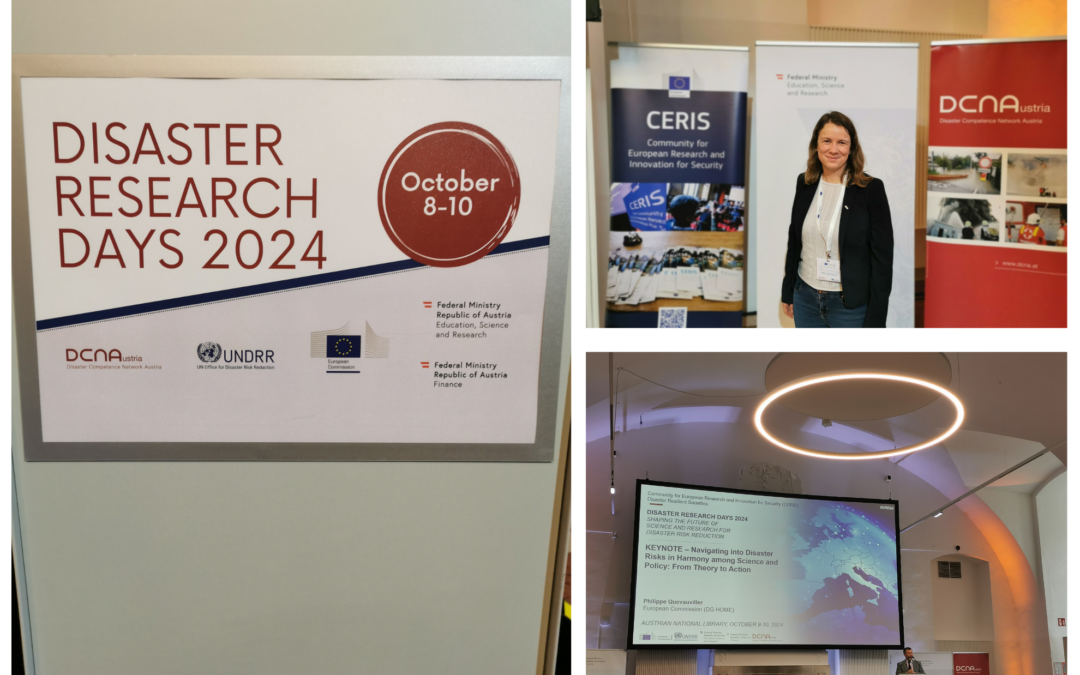The DRD24 Conference kicked off yesterday in Vienna with a packed schedule focusing on the latest developments and research in disaster risk reduction. The day began with a formal opening session moderated by Horst Bischof from Graz University of Technology. Opening remarks were delivered by Martin Polaschek from the Federal Ministry of Science, Research and Education, Andreas Reichhardt from the Federal Ministry of Finance, and representatives from the European Commission (DG HOME), Oliver Seiffarth and Giannis Skiadaresis.
A highlight of the morning was the keynote speech by Philippe Quevauviller from the European Commission, who discussed the needed harmonization of science and policy in disaster management at European level. He highlighted the importance of communication and the necessity of translators becoming transformers to archive resilience.
This was followed by the first panel, which focused on fostering communities through national and European disaster research. Experts like Giannis Skiadaresis and Christina Corbane emphasized the importance of collaboration at various levels. The capability approach and the long timeline of research were discussed together with the audience.
The second panel, moderated by Dilanthi Amaratunga, explored societal resilience through collaborative experiences. Speakers such as Bernd Resch and Thomas Glade discussed innovative approaches to strengthening communities highlighting the importance of building up trust to be able to open up, learn from each other and build resilience together.
The third panel of the day focused on safeguarding critical infrastructure through disaster research. Moderated by Robert Galler, experts like Monica Cardarilli and Elisabete Teixeira shared the latest research findings and their practical applications by locking into key lessons learned.
The fourth panel examined the intersection of public health and disaster management. Speakers including Pavel Truchly and Georg Duscher addressed the challenges and solutions in this area presenting different projects like RESCUER.
The day concluded with a summary of key insights and a walking dinner, providing attendees with further opportunities to network and exchange ideas.
The DRD24 Conference has already demonstrated on its first day the crucial role of collaboration between science, policy, and practice in enhancing resilience to disasters and minimizing future risks.


